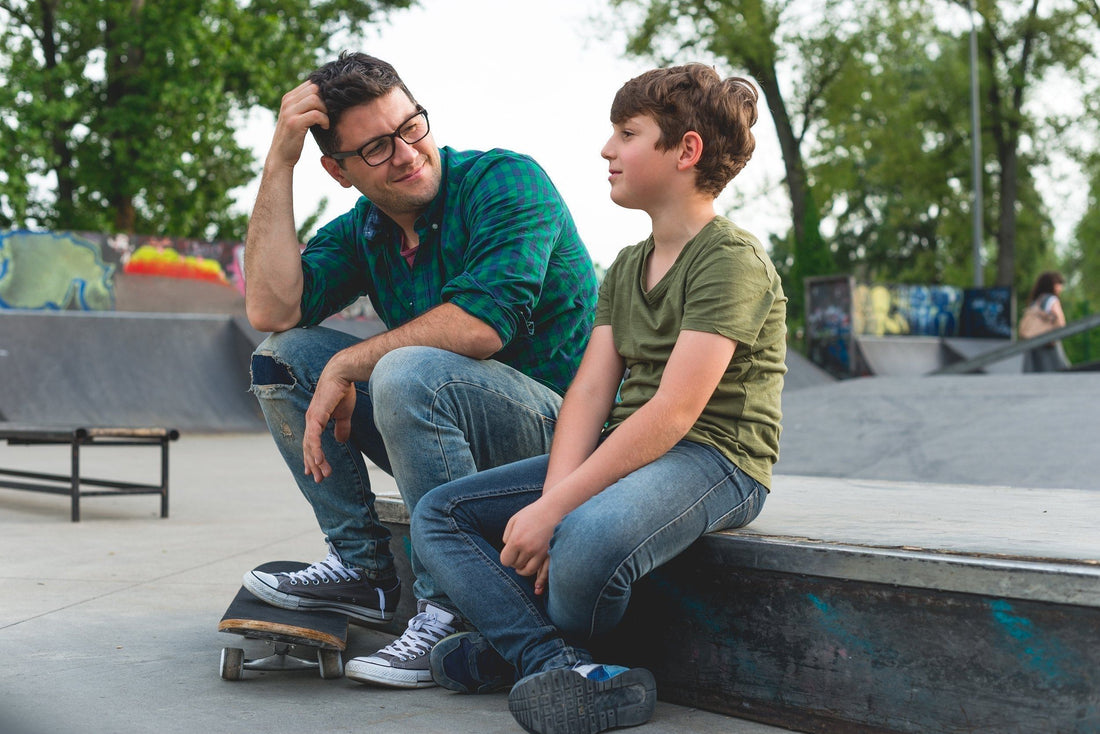by Aprel Phelps Downey
Being a parent to a child with anxiety means learning to ride out the storm on a minute-by-minute basis. You want to be supportive and encourage your child to participate in social activities, even when their anxiety level is high. You also want your child to know that you love and support them unconditionally. To make that happen, you must choose your words carefully, as you know one wrong word is all it takes to send the wrong message to your child.
Things to Say to Your Child With Anxiety
Knowing the right things to say to someone with anxiety can be difficult. When that someone is your child, finding the right words is an emotional task. Your words need to show empathy, compassion, and encouragement. Anxiety makes your child feel as if their world is spinning out of control. That is a scary feeling and they need your reassurance of safety. Give your child that by saying “I’m here and you’re safe” until they begin to feel the truth of your words.
You can help to empower your child by asking what they know about fear and inviting them to speak to it directly. Utilizing a phrase of “I don’t have to listen to you” can help lessen the feeling of control that anxiety has on them. Acknowledge the uncomfortable feeling anxiety creates by asking them to name a calming strategy they would like to try. Help her come up with different techniques like deep breathing or long stretches that work to relax her when she feels anxious.
Asking questions is a great way to help your child face any feelings of anxiety. You can ask how big they think the worry is or what they would like you to know about it. Listen to what they share without interrupting or offering advice. When they’ve finished talking, ask if the two of you can change the ending to what is causing them to be anxious. Let your child come up with a few silly suggestions and then offer a realistic one that will help to ease the anxiety next time.
What Not to Say to Your Child With Anxiety
Learning what to say to someone with anxiety requires you to understand that words have power. Each word spoken must be carefully chosen, so as not to make a tense situation worse. Choosing your words carefully is easier said than done when you’re watching your child struggle with a difficult task or activity. Knowing certain words or phrases to avoid saying out loud is helpful.
You never want to say “Don’t worry” or “It’s not a big deal” to your child, as each one implies that your child is being foolish for letting anxiety get the best of them. Those words can also make it seem as though having anxious feelings is unacceptable in your eyes. Likewise, using words like “It’s all in your head” or “There’s nothing to be afraid of” creates a feeling of guilt upon hearing your dismissive words. Telling your child to “hurry up” or to “stop thinking about it” will only increase the frustration you’re feeling, while stirring up feelings of regret or shame that they’re already facing.
How You Can Be Supportive
When finding the right words to say proves difficult, let your actions show you how to support someone with anxiety. Having family reading time is a great way to help your child feel included in family activities. Select several books that the family can enjoy, making sure that one of the books features a character with anxiety. Children will delight in seeing themselves on the pages of the book. Your family will see what life with anxiety may be like for your child, which helps build compassion and understanding.
Engaging in craft projects together gives you a way to connect with your child while making them feel special for having your undivided attention. The two of you can create worry stones that will facilitate a self-soothing technique when anxiety strikes. Roll pieces of modeling clay into balls and place your thumbprints in the center. Bake in the oven at 250 degrees for 30 minutes and let cool. Keep the finished stone by your side and tell your child to do the same. Knowing they share something special with you will help them feel your support even when you’re not together.
Another great project is to create a worry box to hold their deepest worries, fears, and anxieties. When a new feeling arises, your child writes it down on a piece of paper and sticks it inside the box. Be supportive by adding worries of your own to the box from time to time. Doing so shows that although you may not know what to say, you’re always by their side.
At times, it will be best to not say anything. A welcoming hug, a favorite snack or a warm smile from you will be all your child needs to know you care. Work together to create a daily schedule that incorporates nutritious food and a bedtime routine that helps your child relax and unwind from the day. Adding a homeopathic product, like Brillia, will work to reduce your child’s feelings of anxiety as well. All of these techniques work together to give your child the chance to shine in the fight against anxiety.
Aprel Phelps Downey is a brand storyteller, author, and writer specializing in small-business marketing services. She holds a bachelor of science in marketing from the University of South Florida. She resides in Eastern Tennessee with her husband and daughter.
References:
1. https://lemonlimeadventures.com/what-to-say-to-calm-an-anxious-child/
2. https://www.psycom.net/child-anxiety-things-never-to-say
3. https://familytherapybasics.com/blog/2017/10/8/10-therapist-and-child-approved-activities-to-support-kids-with-anxiety







